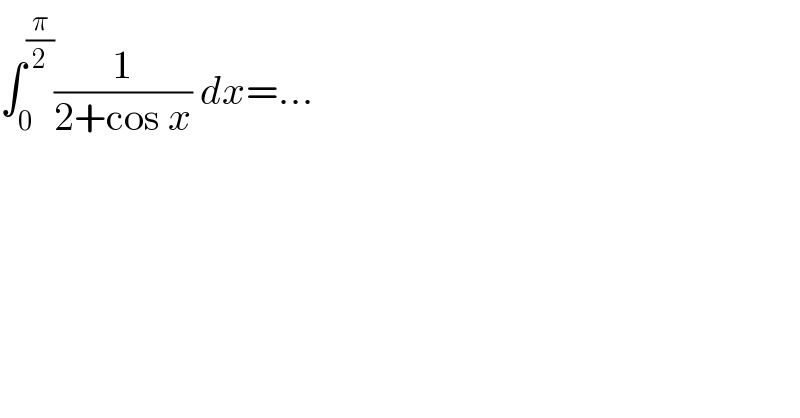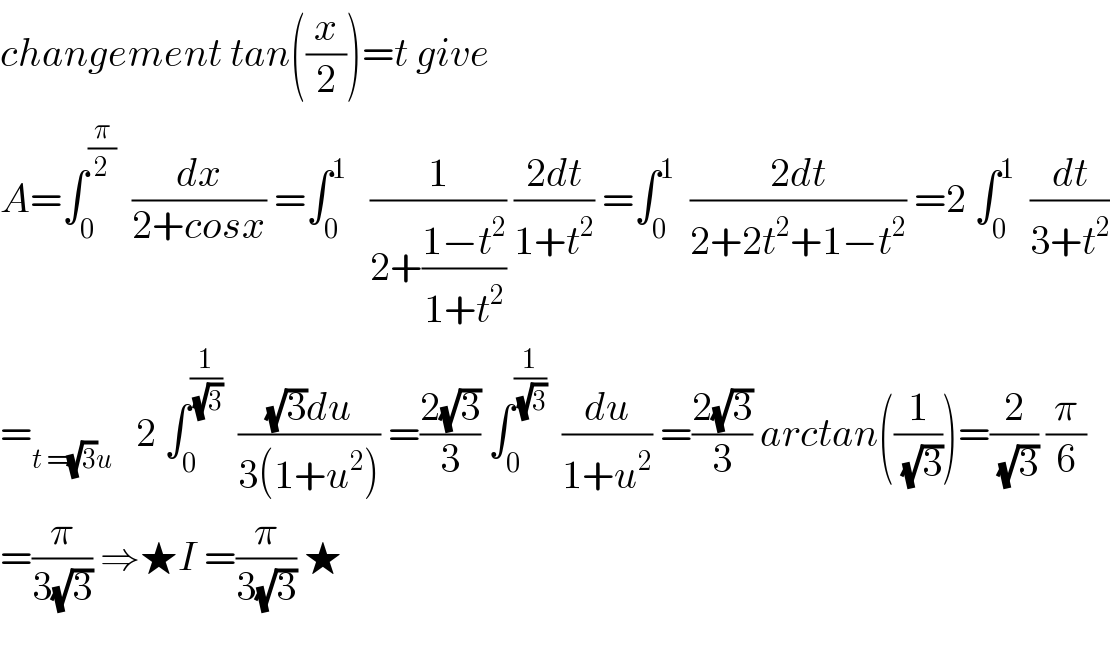
Question and Answers Forum
Question Number 53295 by gunawan last updated on 20/Jan/19

Commented by maxmathsup by imad last updated on 20/Jan/19

Answered by tanmay.chaudhury50@gmail.com last updated on 20/Jan/19
![∫_0 ^(π/2) (1/(2+((1−tan^2 (x/2))/(1+tan^2 (x/2)))))dx ∫_0 ^(π/2) ((sec^2 (x/2))/(2+2tan^2 (x/(2 ))+1−tan^2 (x/2)))dx t=tan(x/2) dt=(1/2)sec^2 (x/2)dx ∫_0 ^1 ((2dt)/(3+t^2 )) 2×(1/(√3))∣tan^(−1) ((t/(√3)))∣_0 ^1 (2/(√3))[tan^(−1) ((1/(√3)))]=(2/(√3))×(π/6)=(π/(3(√3)))](Q53297.png)
Commented by gunawan last updated on 20/Jan/19

